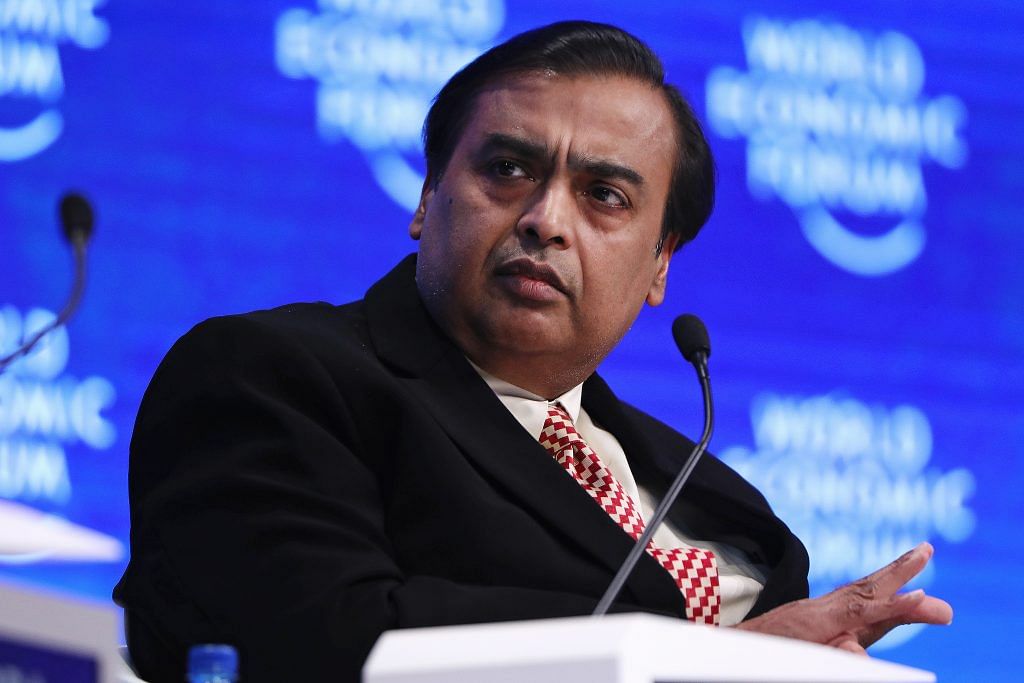One would not be surprised if those criticising the Jio Institute are also working on their CVs to be forwarded its new chancellor.
Narendra Modi can never do anything without creating a controversy. Add Mukesh Ambani to the mix and you have double bonanza for the detractors. Assigning the Institute of Eminence status to the proposed Ambani higher education venture, Jio Institute, has raised predictable brouhaha in political and intellectual circles.
I don’t hold any brief for Reliance or for the government, but there is no financial scam here, now that early rumours about the Rs 1000 crore grant have been nipped in the bud. It is an out of turn favour that could spoil an already uneven playing field. But, it is hardly an insurmountable advantage that other existing or potential players cannot overcome. There are many examples, both good and bad, of private educational enterprises thriving in different states despite the policy anomalies.
First, those criticising the choice were not present on the panel. Second, it is doubtful if they even have the full idea of the criterion applied and who else were in the fray. That raises questions about the motives of those who are most vociferous and makes one wonder if there are any underlying prejudices driving their outrage.
A step in right direction
First, let us ask if the problem is with the concept of “greenfield” recognition or that it has gone to Reliance? Would the objections be as virulent if some of the other institutes that are being mentioned, such as the Raghuram Rajan-backed KREA University near Chennai, also qualified? Going by the discourse one hears on social media and op-ed columns of newspapers, the answer is no.
It is being asked how a non-existent university can get an accreditation. It might appear odd at first, but if one is able to cut through the chicken and egg conundrum, the idea of providing pre-certification to “greenfield” proposals has much to commend itself.
Education is big business today in India. As noted earlier, there are several examples of mega private investments in the education sector. Unfortunately, many of them are degree factories of dubious credentials or simply large-scale rackets. So, common sense suggests that any system of rigorous quality control right from the time of conception should indeed be welcome.
The state cannot be expected to multiply IITs, IIMs and Institute of Science. The state university system is too broken and mired in politics to be revived by greater injection of funds alone. Hence, the real benefit of such a scheme would lie in enticing the big boys of industry to join the club “edupreneurs”, creating an enabling environment for rapid scale-up, attracting talent, and facilitating international collaboration. Across the world many iconic institutions of higher learning have been built by private funding.
BJP’s academic acumen
In India, historically, business barons have been less than generous with philanthropy. It is only now that some gen-next industrialists and corporate billionaires have begun to look at social enterprise. Many of them, educated abroad and exposed to Ivy-league schools, recognise the potential for top-notch universities of global standards in India. But, even they would be wary of the maze of red tape and bureaucratic roadblocks. Hence, predictability and transparency in policy are imperative preconditions of such an initiative.
Seen objectively, such a policy vehicle would be ideal for getting “untainted money” into higher education. It will build in safeguards to ensure both academic independence and institutional autonomy. Any system of “post-certification” might be too risky for genuine investors to put money on the block in a nascent environment.
Had another government introduced it, the same critics may even have hailed it as the most innovative scheme. They might have seen in it the potential to transform India’s education landscape, putting it firmly on the international map as a destination for higher learning. But, our intellectuals are not so indulgent towards the BJP’s academic acumen.
Having thrived in the era of Licence-Permit-Quota Raj, Indian business houses are genetically coded to jump the queue. Organisations like Reliance have perfected it as an art form. So, had Reliance pipped one of its peers at the post in getting the early nod for a business venture, people would have dismissed it with a wink and a smile. But, Reliance’s foray into liberal arts and sciences education has stirred the proverbial hornets’ nest.
Gate-crashing the sacred preserve
Of late, the left liberal intellectual community began to see the emergence of privately funded independent educational shops as the new bastion of professional intellectuals and sinecures for retired academics of state universities (much like AIIMS’ doctors finding post retirement appointments at private hospitals). Liberal not just in their curriculum but also in faculty remuneration, these premier private universities were reducing their dependence on the international lecture circuit.
But Reliance gate-crashing this sacred preserve of the intellectual high priests with the patronage of the Modi government strikes at the foundation of this august congregation.
There is a sudden realisation that nothing is out of bounds for the new political dispensation in its quest to create an alternate ecosystem. The level of insecurity is apparent in the speculation over the choice of a potential chancellor of the university, which is yet to be founded. This potential chancellor is already seen as being “not (or no longer) one of us”.
But there is no stopping an idea for which the time has come. So, one would not be surprised if some of those who are writing the op-eds criticising the Jio Institute are also silently working on their own CVs to be forwarded to the new chancellor.
Sandip Ghose is a marketing executive and blogger on current affairs. He tweets @SandipGhose
